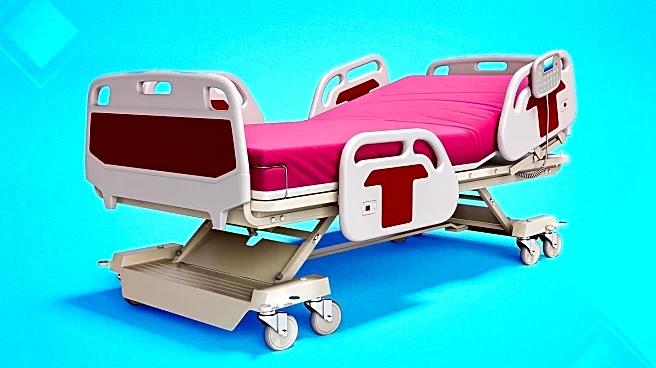What's Happening?
Betsy, an eleven-year-old girl from Blackburn, is actively fundraising to help other children who find hospital visits intimidating. After experiencing a sudden seizure at a sleepover, Betsy was diagnosed with a rare neurological condition at the Royal
Manchester Children's Hospital. Her experience with brain scans, which she found frightening, inspired her to raise money for rocket-themed MRI simulators. These simulators are designed to make the scanning process less intimidating for young patients by incorporating playful elements like lights and sounds. Betsy and her family are participating in a charity walk to support this cause, having already raised £2,000. The initiative aims to transform the daunting experience of MRI scans into something more engaging and less stressful for children.
Why It's Important?
This initiative highlights the importance of addressing the emotional and psychological needs of young patients in medical settings. By making MRI scans less intimidating, the rocket-themed simulators could significantly reduce anxiety and improve the overall hospital experience for children. This approach not only benefits the patients but also eases the process for healthcare providers by encouraging cooperation from calmer, more relaxed children. The fundraising efforts led by Betsy and her family underscore the power of community involvement in enhancing healthcare environments. Such initiatives can lead to broader adoption of child-friendly medical technologies, potentially setting a precedent for hospitals worldwide.
What's Next?
The first charity 'Pyjama Walk' is scheduled for November 8 at Heaton Park, aiming to raise further funds for the rocket-themed MRI machines. As the event approaches, it is expected to draw more community support and media attention, potentially increasing donations. If successful, this initiative could inspire similar fundraising efforts in other regions, promoting the adoption of child-friendly medical equipment in hospitals. The outcome of this event may also influence hospital policies regarding pediatric care, encouraging more healthcare facilities to invest in technologies that cater to the emotional well-being of young patients.
















